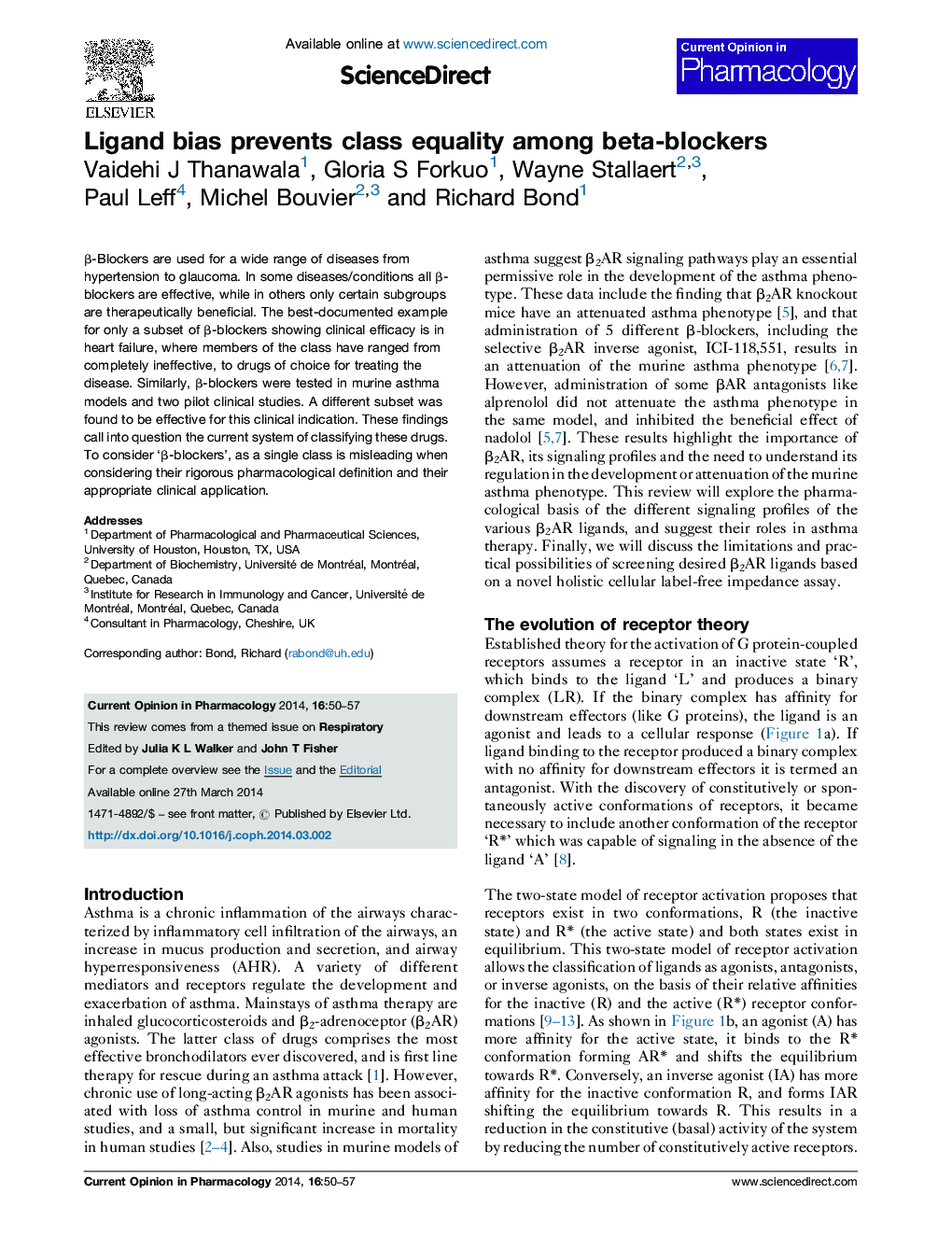| Article ID | Journal | Published Year | Pages | File Type |
|---|---|---|---|---|
| 5825997 | Current Opinion in Pharmacology | 2014 | 8 Pages |
â¢Despite known differences, β-blockers are often regarded as a single class of drugs.â¢In several diseases only a subset of β-blockers are therapeutically effective.â¢Multiple signaling pathways and ligand bias can explain differences in effectiveness.â¢Results of an in vitro cellular impedance assay correlates with asthma phenotypes.â¢Renewed classification of β-blockers into specific profiles of ligand bias is required.
β-Blockers are used for a wide range of diseases from hypertension to glaucoma. In some diseases/conditions all β-blockers are effective, while in others only certain subgroups are therapeutically beneficial. The best-documented example for only a subset of β-blockers showing clinical efficacy is in heart failure, where members of the class have ranged from completely ineffective, to drugs of choice for treating the disease. Similarly, β-blockers were tested in murine asthma models and two pilot clinical studies. A different subset was found to be effective for this clinical indication. These findings call into question the current system of classifying these drugs. To consider 'β-blockers', as a single class is misleading when considering their rigorous pharmacological definition and their appropriate clinical application.
